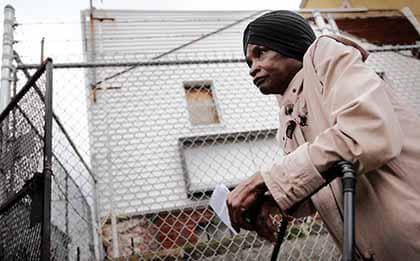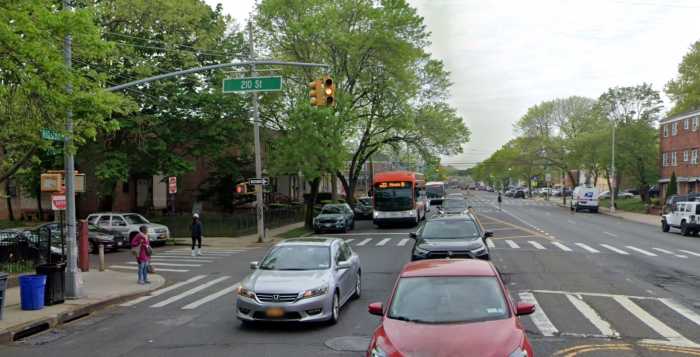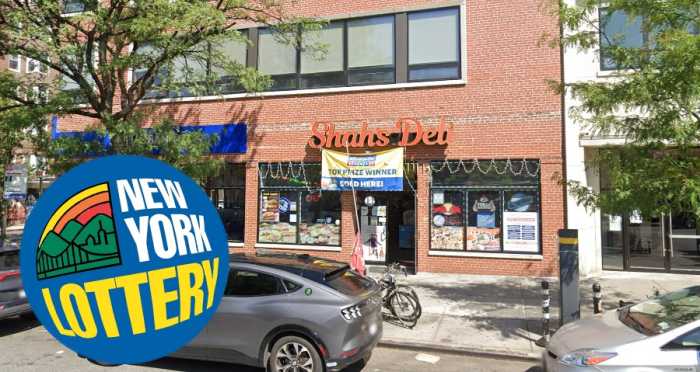By Joe Anuta
Thanksgiving is synonymous with feasts and full stomachs, but more than a third of residents across the borough had trouble filling the table last year — and that number is growing.
Grim statistics from Food Bank New York City revealed that in 2009 39 percent of families in Queens had trouble affording food and 19 percent would not be able to afford food if a breadwinner was laid off. These numbers corroborate citywide statistics showing 1.4 million New Yorkers relied on a emergency food center last year..
And many organizers of the 216 centers across the borough said that the problem is worse this year.
“This is a very big need, and it’s only getting bigger,” said Jannett Taylor, who works with Steinway Child and Family Services at 22-15 43rd Ave. in Long Island City.
Taylor’s organization keeps a monthly tally of how many people visit the pantry, and so far the numbers are up 7 percent compared to this time last year, with the holiday months still forthcoming.
“The numbers have greatly increased this year,” she said.
In Rego Park, starving residents wait in line before one soup kitchen even opens its doors, evidence that the free supper is probably the only time they eat all day, according to Alexandar Rapoport, executive director of Masbia, a soup kitchen that serves kosher meals at 98-08 Queens Blvd.
“It’s incredibly shocking when 4 p.m. comes around and people are already desperate, waiting at the door,” he said. “Sometimes we have a line of a dozen of people.”
The organization also runs two other branches in Brooklyn, but Rapoport said that this was a new phenomenon.
Rapoport’s food center had to construct a separate outdoor waiting room with chairs so hungry residents did not have to wait in the street and endure the embarrassment often felt by people who visit soup kitchens in public.
“We find that hunger has a lot to do with shame,” he said. “So we want [our pantry] to be nice and dignified.”
Families and individuals come for free meals, but half of Rapoport’s clientele is composed of senior citizens, a segment of society that is increasingly turning to emergency food centers.
Citywide in 2009, two-thirds of pantries and soup kitchens saw an increase in senior citizens, and in many locations the increase was by more than 25 percent.
But this year it seems like you could find hungry residents of almost any age and occupation.
The working poor — often families who make too much money to qualify for food stamps or other government programs yet cannot afford food — have increasingly been turning to soup kitchens to make ends meet, said the Rev. Alberta Mendenhall, who runs the First Presbyterian Church’s food pantry, located at 89-60 164th St. in Jamaica.
“Most of the people that we see are not on food stamps,” Mendenhall said. “But I’m not surprised. You wonder how they can even afford shelter.”
For many residents who recently lost their jobs and cannot find work, it can be their first time at an emergency food center. In 2009, nearly 100 percent of food centers saw an increase in first-time visitors and the experience can be sobering.
“We have people come who break down and cry,” Mendenhall said. “It’s happening more this year.”
But despite tough times for the holiday season, this year might not be worse than 2008, when the economy began to plummet and the population who had trouble affording food was nearly 10 percent higher than 2009 levels.
Government programs such as Woman Infants and Children and the Supplemental Nutrition Assistance Program, which deals with food stamps, helped mitigate the hunger problem after 2008, according to the reports by the New York City Coalition Against Hunger and Food Bank New York City.
The programs provided a safety net for individuals and families who would have otherwise gone hungry during the worst months of the recession.
And it is no secret that hunger is tied to the still weak economy, according to Mendenhall, which is why she thinks the government needs to step in again later this month.
At the end of November, a set of unemployment benefits will expire unless Congress votes for an extension.
“It’s a sin to let people go hungry in this country,” she said.
Mendenhall said she would like to see the benefits extended as well and more food distributed to pantries by the city. In 2009, nearly 50 percent of shelters reported that they did not have enough food to give out.
“We have been giving out less food to more people,” Mendenhall said. “It’s gone as soon as it comes.”
Reach reporter Joe Anuta by phone at 718-260-4566.



































